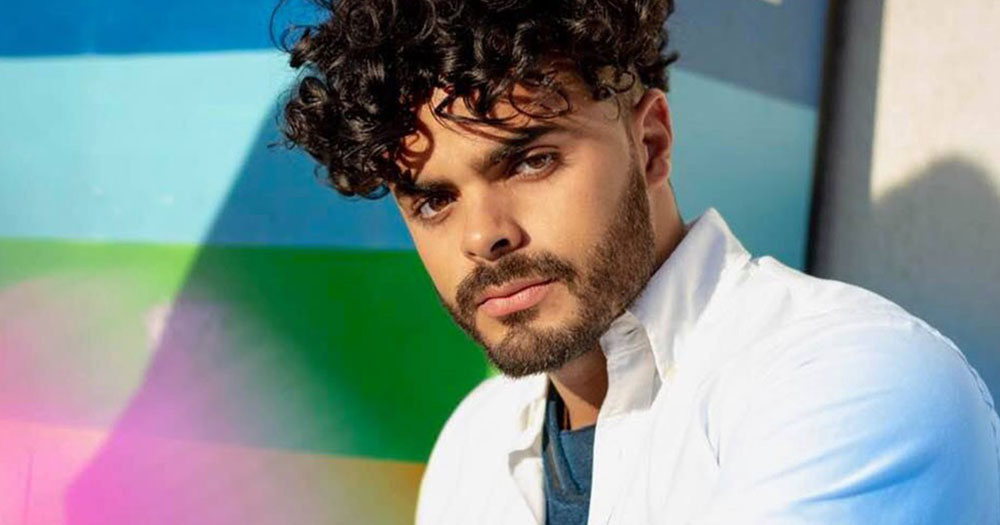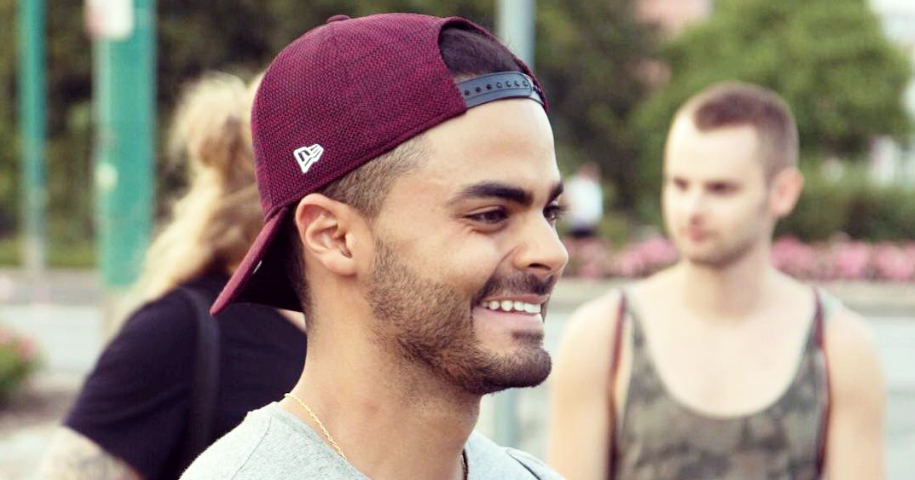As a gay man growing up in a conservative environment in Brazil, I had to face many obstacles throughout my life just like everyone else, but not in quite the same way. Being an LGBT+ person makes our lives already harder, more complicated and lonelier. We are constantly facing the misunderstanding of our parents, our siblings, people around us who do not understand or do not know why we are the way we are. But it was only when I was in Ireland, far from my home, from my family, friends and everything that was familiar to me that I realised I had an issue that I needed to deal with.
At the start, I had to prioritise other things, like learning a new language, getting a job and living this new experience, so I put my issue back into a ‘box’ for a little longer.
After living here for a while and building a base of trustworthy and loving people around me, I started to feel the need to share with someone what had happened to me when I was a child and finally open that box. This decision was the first steps of something that would change both mine and my relatives’ lives completely.
When I became Mr Gay Ireland in 2018, I started to understand that it was not just about me anymore, I was representing a whole community. Some people in our community are struggling with many different things in their lives, and the fact that I had a platform where I could help in some way, gave me the strength to finally open up. Working on one of the challenges in the Mr Gay Europe competition was the deciding factor – all the delegates had to create a project about our community which would make a positive impact.
Some delegates opened up by talking about HIV or being transgender. I asked myself what life experiences I could talk about that would help the community. It was at this moment that I realised that it was time to forgive myself and let the monsters in my head go.
I was abused as a child and that changed me forever. I have been dealing with this for 20 years in my head, alone and quiet, but now it was time to talk about it.
I discovered that 93% of victims know their abusers. Many perpetrators of sexual abuse are in a position of trust or responsibility for the child’s care, such as a family member, teacher, or coach. The child has a relationship with the abuser, it can be long or short term abuse. As a child, we do not know what is normal and what isn’t in relation to something like this, so the abuser is in control and the child is warned to keep quiet or something bad could happen. It’s a sick mind game to play with an innocent life.
I experienced so much guilt, shame and blame. People feel guilty about not having been able to stop the abuse, or even blame themselves if they experienced physical pleasure.

It is important to understand that it’s the person who hurt you who should be held accountable. Not you. The guilt of pleasure is one of the heaviest feelings to overcome. You feel like you are guilty because you ‘liked’ the behaviour or you believed you did, but it is not true. If you stimulate something you will get a reaction from it, that is natural. What isn’t natural is an adult doing this to a child. Because of this, intimacy and relationships after abuse can be difficult. You meet nice people who you connect with but things sometimes don’t go further from there, which makes you think that something is wrong and you question why you feel that way.
Some survivors experience flashbacks or painful memories while engaging in sexual activity, even though it is consensual and on their own terms. That’s an understandable reaction, but it is something that we have to work on and overcome. Empowering yourself and allowing yourself to feel what you need to feel is so important. What happened in the past – you can’t change it, but you can let it go.
Letting someone into your life can make a huge impact on how you see yourself. It takes courage to open up to a partner about what has happened to you. It’s a beneficial step to take as sometimes it can come across that you have a lack of interest in intimacy, which can jeopardise your relationship.
Worrying about telling my story impacted me in so many ways, fearing some people might be hurt by my story. My abuser is a son, a husband or could be the father of someone and having to deal with the truth might be hard for those people connected to him. I had to think about what needed to be done weighed against the heaviness of my silence, but you can’t be the victim of your own story or carry scars around for years. The past doesn’t define you and it doesn’t stop you from being who you want to be.
I find it fascinating the resilience of children, how they adapt, stay strong and believe in better days; the joy of innocence and purity. I miss my innocent days, but to be honest, I barely remember them. I wish I could remember them more. Unfortunately, toxic masculinity is a real thing and we are all also a victim of it. Men can’t cry or show feelings, which can make suffering from abuse so much harder. Victim blaming is something that oppressors use to silence those who are willing to share their stories. The same happens for women, with all-too-familiar statements like “her skirt was too short”, “she was drunk”, “she was asking for it”. I hope that our society stops blaming the victim for what has happened to them. If we change this mentality, more people will speak up against their abusers and more predators would end up where they belong – in jail. This will lessen the large numbers experiencing sexual abuse and stop people suffering.
As an adult survivor, I have been living with these memories for a long time, 20 years precisely. Some survivors keep the abuse a secret for many years because it is not easy to come out of the closet. Victims may have tried to tell someone and were met with resistance or felt there was no one they could trust. For these reasons and many others, the effects of sexual abuse can transpire many years after the abuse has ended. Remember that there is no set timeline for dealing with and recovering from this experience. Like everything else in life, it is different for each person, you will come out when you feel like doing it and that’s okay.
From my own experience of keeping my story hidden, opening up to my family, my partner, my friends and now the world, it gave me strength that I didn’t even know was there. The first time I opened up, I cried, and I cried again the second time, but after talking about it more, the pain that I was carrying got smaller and smaller. I found my self-healing in other people, with some contacting me on social media and sharing their own experiences and others coming to me to say that they too had been through the same but did not have the strength yet to talk about it publicly.
Just know – you are not alone. It is okay to feel the way you are feeling, it is okay to be who you are. Sexual abuse can have numerous negative impacts but it does not define who you want to become. Empower yourself with everything that you can and let everything else go. I personally do not believe in forgiveness, especially when someone stole something so precious from me – my innocence. But depending on what you believe, either Jesus or karma will make a decision in the end.
Most people aren’t ready to tell the world but I tell everyone that it will be okay. I believe that once one person starts talking, the movement starts to take form. It’s important that people share their experiences and support each other. This is my motivation.
Be kind to everyone. Kindness is an endless circle that should be cultivated every day, even more so in our community, which needs it so much. This can be our strongest weapon to change the world.
This story originally appeared on GCN’s May 2019 issue. Read the full issue here.
© 2019 GCN (Gay Community News). All rights reserved.
Support GCN
GCN is a free, vital resource for Ireland’s LGBTQ+ community since 1988.
GCN is a trading name of National LGBT Federation CLG, a registered charity - Charity Number: 20034580.
GCN relies on the generous support of the community and allies to sustain the crucial work that we do. Producing GCN is costly, and, in an industry which has been hugely impacted by rising costs, we need your support to help sustain and grow this vital resource.
Supporting GCN for as little as €1.99 per month will help us continue our work as Ireland’s free, independent LGBTQ+ media.
